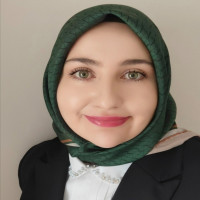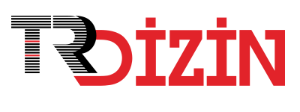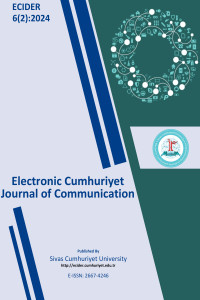Research Article
Issue Reviewers



Dr. Öğr. Üyesi Hatice GENÇ was born on 9 November 1985 in Edirne. She completed her primary, secondary, and high school education in Edirne. She earned her bachelor’s degree in German Language and Literature from Sivas Cumhuriyet University between 2004 and 2009. She completed her master’s degree from 2010 to 2012 and her PhD from 2012 to 2017 at the Department of German Language and Literature at Atatürk University in Erzurum. Her master’s thesis focused on “Coming to Terms with the Past in Bernhard Schlink’s The Reader.” Her doctoral dissertation examined “The Phenomenon of Suicide in the Novels of Jean Améry.” Between 2011 and 2018, she worked as a research assistant in the Department of German Language and Literature at Sivas Cumhuriyet University. Since 2018, she has been working as a faculty member in the Department of German Language and Literature at Akdeniz University. Her research primarily focuses on twentieth-century German literature.

Ankara doğumludur. 2013 yılında burslu ve İngilizce olarak öğrenim gördüğü Yaşar Üniversitesi, İletişim Fakültesi Halkla İlişkiler ve Reklamcılık Bölümü’nden mezun olmuştur. 2016 yılında İstanbul Üniversitesi, Sosyal Bilimler Enstitüsü, Yeni Medya ve İletişim Yönetimi Tezli Yüksek Lisans Programı’ndan “Çevrimiçi Alışverişte Tüketici Tutum ve Davranışlarını Etkileyen
Etmenler: Vakıf Üniversitesi iletişim Sanatları Bölümü Öğrencileri Üzerine Bir Araştırma” başlıklı teziyle uzmanlık derecesi almaya hak kazanmıştır. Aynı yıl İstanbul Üniversitesi, Sosyal Bilimler Enstitüsü, Halkla İlişkiler ve Tanıtım Doktora Programı’na kayıt olmuştur. 2021 yılında “Lüks Marka Kullanımında Dijital Tüketicilerin Hedonik Tutumlarının Dönüşümü: İkinci El Moda Siteleri Üzerine
Bir İnceleme” başlıklı doktora tezi ile “Doktor” unvanını almaya hak kazanmıştır. 2015-2020 yılları arasında İstanbul Kültür Üniversitesi Sanat ve Tasarım Fakültesi, İletişim Sanatları Bölümü’nde Araştırma Görevlisi olarak görev yapmıştır. 2021 yılından itibaren ise Beykent Üniversitesi, İletişim Fakültesi, Halkla İlişkiler ve Reklamcılık Bölümü’nde “Dr. Öğretim Üyesi” olarak görev alan Varol, 2024 yılında Halkla İlişkiler bilim alanında “doçent” unvanını almaya hak kazanmıştır. Varol, halen “halkla ilişkiler”, “bütünleşik pazarlama iletişimi”, “tüketici davranışları”, “tüketim kültürü”, “sağlıklı yaşam pazarlaması”, “moda iletişimi” üzerine çalışmalar yapmaktadır.


Yeni Medya, Kültür, Kimlik, Metaverse
Aim & Scope
As a peer-reviewed journal, the Electronic Journal of Cumhuriyet Communication (E-JCC) is published twice a year (in June and December) within the Faculty of Communication of Sivas Cumhuriyet University. E-JCC aims to present disciplinary and interdisciplinary studies within the framework of communication sciences and to contribute to social sciences.
Electronic Journal of Cumhuriyet Communication (E-JCC) is an international refereed, open-access, academic, electronic journal published twice a year in June and December. Articles submitted to the journal are primarily examined and evaluated by editorial boards. After this process, articles are evaluated by at least two referees. E-JCC includes scientific and original studies (such as research articles, translations, research papers, declarations, introductory papers for books, book reviews) written in Turkish and/or English that discuss topics or examine problems related to communication and social sciences. It is prioritized that the studies should be written with scientific reality, have the quality to contribute to scientific fields, refer to important sources, have an advanced language, should not be written with prejudice, and can not contain slogan type of sentences. Also, studies should have the qualifications such as review, research, and developed form of declaration.
Author Guidelines
E-JCC includes scientific and original studies (such as research articles, translations, research papers, declarations, introductory papers for books, book reviews) written in Turkish and/or English that discuss topics or examine problems related to communication and social sciences. It is prioritized that the studies should be written with scientific reality, have the quality to contribute, refer to important sources, have an advanced language, should not be written with prejudice, and can not contain slogan type of sentences. Also, studies should have the qualifications such as review, research, and developed form of declaration.
The evaluation process is not initated for the manuscripts that do not comply with the writing principles of the journal, and do not have a footnotes, preface, summary or references.
The authors should follow the guidelines of APA (6th Edition) for the bibliography and all citations.
For the evaluation process, it is taken into account that the authors and referees are not from the same institution. The names of the authors and referees are confidential to each other. The editorial board changes for each issue and is formed in accordance with the subject of the articles. For the assessment of the submitted manuscripts, the referees are determined based on their expertise.
At least two referees are assigned to each manuscript to apply a double-blind review for the first phase of the assessment. In case one of the referee’s states “reject” and the other “accept”, “minor revision” or “major revision”, the article is forwarded to the third reviewer. If the third reviewer reports “publishable” or “can be published after revision”, the suggested revisions of the referee and editor are sent to the author(s). However, if the third referee makes a rejection decision, the article can not be published and the author is informed.
The reviewers pay regard to the following factors for the evaluations of the manuscripts:
Do the Turkish and English titles of the work reflect the article?
Do the abstracts of the article in both languages describe the article briefly?
Are the keywords sufficient and descriptive of the article?
Does the article contribute to communication science and social sciences?
Are the purpose, hypotheses, scope and method of the article sufficient for the study?
Are the language and expressions used in the article sufficient?
If there are, are figures and under-figure texts (including tables) sufficient?
Does the conclusion summarize the article sufficiently?
Are the references related to the topic?
Are the resources sufficient for the article?
Authors are expected to comply with the requested corrections and send the revised version of the article to the e-mail address of the journal or the journal system within 15 days.
If it is determined that the corrections are not made as suggested, the author will be informed. Articles that are not sent as corrected within the specified period are not included in the list of articles to be published.
The language of the articles can be Turkish or English.
Submitted articles should not have been published in another publication before or be at the stage of evaluation for publication. Even if the articles that do not meet these conditions are published, they are removed from the list of the order of publication, and the author is informed.
Papers presented in national or international congresses, conferences, or symposiums can be accepted on the condition that they are converted into the article format and content and not published in another journal or publication.
The articles should be written and submitted in a Microsoft Word document, font type should be set as Times New Roman, size 12 with 1.5 line space. Top, bottom, left, and right margin of the paper should be set as 3 cm.
The manuscript should be A4 size and numbered at the center bottom. Paragraph indent should set as 1 cm. The articles submitted to the journal should include Turkish and English written abstracts and titles.
Turkish abstracts should be in the range of 100-150 words, but Engilsh abstracts may be more than 150 words. Keywords consisting of 5 to 7 words should be placed under the abstracts. The scope, purpose, method, conclusions, and subject of the research should be briefly mentioned in the summary.
In addition, an extended abstract in English between 600-750 words should be added to the study.
The name(s) of the author(s) should be under the title. Also, the affiliation, academic title, address, work and mobile phone, and e-mail of the author(s) should be given with a footnote attahced to the name of the author(s).
The final decision regarding the publication of the articles belongs to the editorial board. The editorial board's evaluation of the article is sent to the author(s) with the referee reports as earliest as possible.
Authors are entitled to the legal responsibility of the article content.
All copyrights of the published articles belong to E-JCC, can not be published elsewhere. The authors are not paid for their articles.
Author(s) approve that their articles are included in non-commercial electronic databases in full text in order to support national and international academic information sharing. With this understanding, E-JCC can publish the articles with full text as General Public Licence.
Articles should be uploaded through the journal’s submission system at https://dergipark.org.tr/ecider
Ethical Principles and Publication Policy
Electronic Journal of Cumhuriyet Communication (E-JCC) is committed to upholding the highest standards of publication ethics and comply with the following principles of Publication Ethics and Malpractice Statement. This statement has been prepared based on the recommendations and guidelines developed for journal editors by the Committee on Publication Ethics (COPE), Council of Science Editors (CSE), World Association of Medical Editors (WAME), and International Committee of Medical Journal Editors (ICMJE).
All submitted manuscripts must be original, unpublished, and not under the review of any other publication. In addition to the original articles, introductory papers or critical reviews on communication products such as forums, books, movies, television programs, or art presentations are accepted. Also, the articles converted from papers presented in congresses, conferences, or symposiums can be accepted.
Studies with the following characteristics must have the Ethics Committee Approval:
Studies sponsored/supported by an institution/organization
The articles converted from papers presented before
Studies produced from a dissertation
The language of the articles submitted to the journal can be Turkish or English.
All copyrights of the published articles belong to E-JCC.
The articles submitted to the journal must have been arranged according to the journal rules.
For the citations in the articles, APA 6th Edition should be used.
The referee board can appoint referees from outside the referee board according to the subject of the articles
Editors convey the articles that comply with the above conditions to the referees by exchanging ideas with the Field Editors without compromising the intellectual property rights and ethical standards, showing clarity and transparency in terms of publication in matters requiring correction and explanation.
In the article evaluation process of E-JCC the two-way blind refereeing principle is applied. Both the referees and the author(s) cannot communicate directly with one another. The article evaluation forms and the notes/comments specified on the text are conveyed to the author(s) by the editors through the journal management system.
Referees should only accept studies related to their area of expertise for evaluation. They should evaluate the studies on the basis of objectivity and pay attention to privacy. Accordingly, they should delete the studies permanently after the evaluation phase and should only use them after the publication. Referees should deny to evaluate the work and inform the editors when they realize that there is a conflict of interest. Referees should use kind and constructive language and avoid impolite, hostile, pejorative, libelous, and personal comments.
The author(s) must submit original studies to the journal. If the author(s) utilize or use other studies, they must make the in-text and end-text references accurately and completely. The name(s) of people who do not contribute to the study should not be written as authors. The Author(s) approve that submitted manuscripts to E-JCC have not been previously published, scheduled, and/or evaluated to be published in another journal.
E-JCC does not charge any submission/application or publication fees. The average evaluation period of the articles submitted to the journal is three (3) months. The submitted articles are sent to referees after the pre-assessment phase. The requests from the referees are forwarded to the author(s) through the system and they are asked to make the corrections within the specified time.
Price Policy
Dergimizde, makale gönderme, değerlendirme ve yayımlanma aşamalarında ücret talep edilmemekte olup yazarlara da telif ücreti ödenmemektedir.





